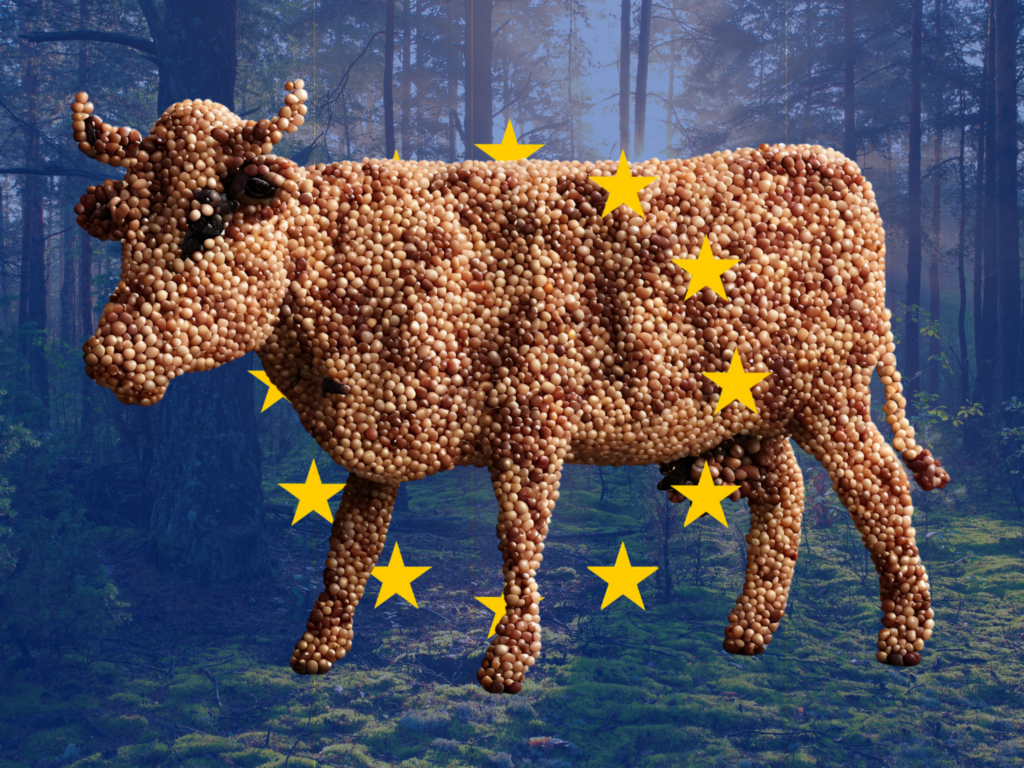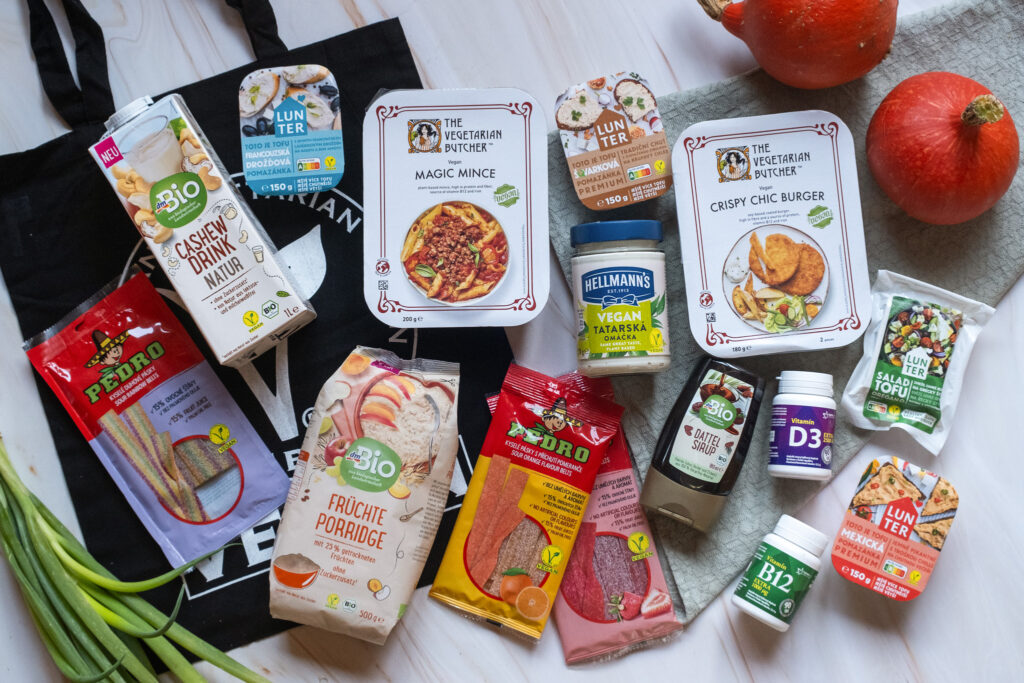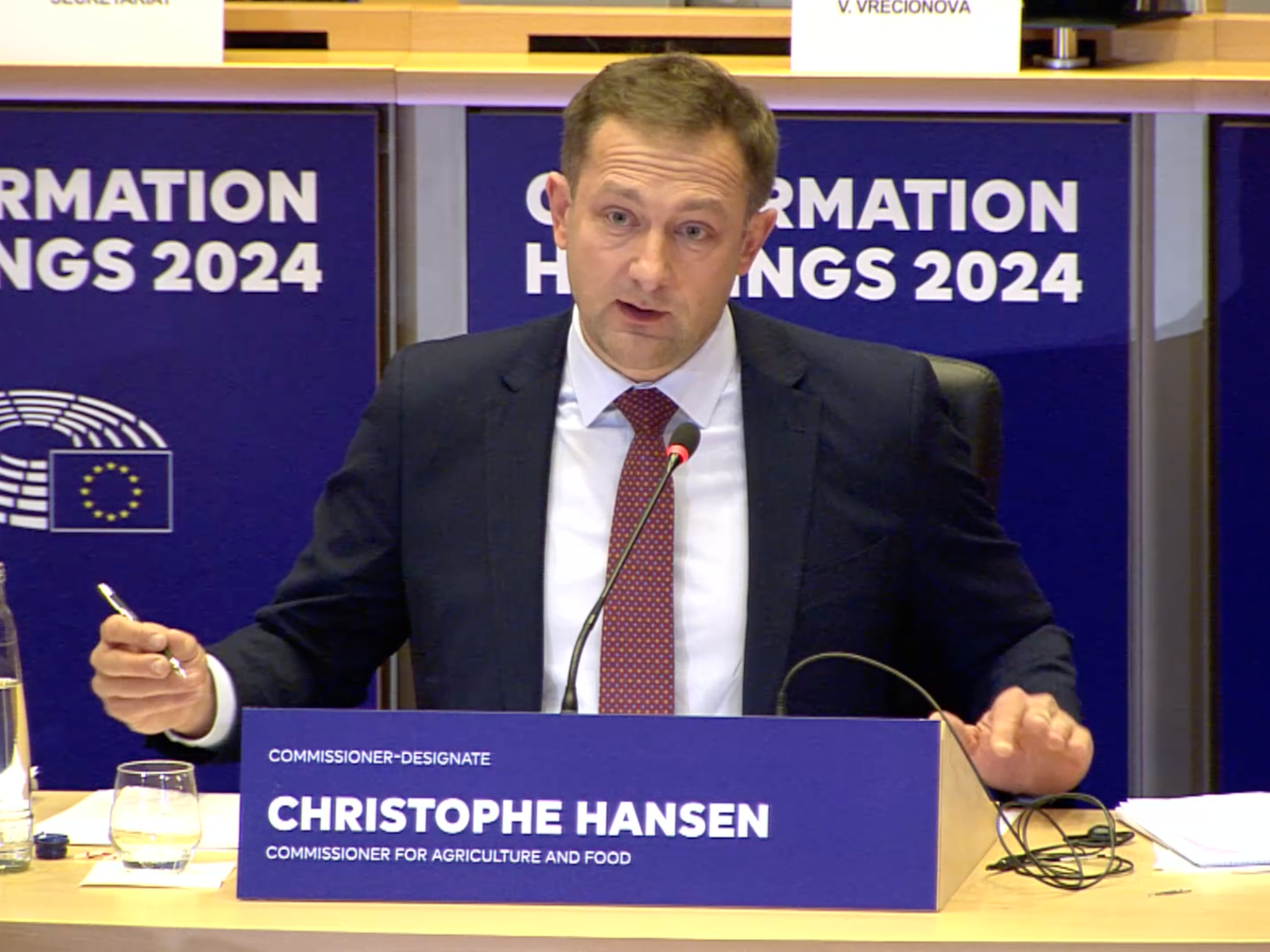130 Climate & Consumer Groups Urge EU to Create Plant-Based Diet Action Plan
5 Mins Read
Over 130 organisations have written an open letter to the EU agrifood commissioner, imploring him to develop a plant-based action plan by next year.
“The time for change is now.” That was the consensus of the Strategic Dialogue on the Future of EU Agriculture last year, which recommended that policymakers create a bloc-wide action plan for plant-based foods by 2026.
It’s a sentiment now being reiterated by more than 130 climate advocacy organisations, animal rights activists, doctors, and consumer groups, who have written to ag commissioner Christophe Hansen to ensure the strategy is included in the region’s vision for agriculture and food, which is expected to be released next month.
“A shift to healthier, more sustainable, affordable and balanced diets is essential for a successful transition to a more sustainable food system – and plant-based foods are part of the solution,” the letter reads.
“Such an action plan should be accompanied by appropriate funding that boosts the production and consumption of plant-based foods, with a focus on organic and agroecological products.”
Why the EU needs a plant-based action plan

The letter’s signatories include the European Consumer Organisation (BEUC), the European Public Health Alliance, Greenpeace, Compassion in World Farming, and Four Paws, among others.
These organisations argue that current policies don’t ensure that healthy, sustainable and balanced diets are the affordable choice, and new measures are sorely needed to ramp up plant-based production and consumption.
An EU-wide action plan, they suggest, would help boost the bloc’s strategic autonomy. Currently, it relies on imports for two-thirds of its high-protein feed, exposing farmers and consumers to supply chain issues and price fluctuations. Increasing plant protein production for direct human consumption can assist in closing the protein gap and bolster self-sufficiency by “doing better with less”.
At the same time, it would create new business opportunities for farmers, who can diversify their production and income sources by introducing new crops. This will increase profit margins and cut costs as there would be less reliance on inputs by integrating nitrogen-fixing legumes.
The economic costs of animal protein production and consumption in the EU amounted to €3T in 2022, but a scenario with healthier and more plant-forward diets could save 43% of these externalities (or about €1.3T annually).
All EU member states have dietary guidelines recommending a higher consumption of whole plant foods, and some are implementing strategies to promote a shift to plant-rich diets. “To ensure policy consistency and support from both farmers and consumers, a coherent EU-wide policy is needed to drive alignment with dietary guidelines across all parts of the value chain,” the letter reads.
Then there are the public and planetary health benefits. Four in five Europeans aren’t eating enough produces, legumes, or whole grain, leading to chronic diseases and avoidable deaths. And climate change, soil degradation, and declining soil fertility are all threatening Europe’s long-term food security, but a plant-based action plan can create a more resilient agriculture system.
Growing calls for food systems transformation in the EU

The EU’s Common Agriculture Policy, which provides farmers with financial support, is heavily skewed towards livestock farming. The sector receives around 82% of its subsidies from this instrument, four times higher than plant-based agriculture. This is despite meat and dairy accounting for 84% of EU agriculture emissions and 71% of its farmland, and providing only 35% of calories and 65% of proteins in the region.
The idea to create an action plan for plant-based food was floated by climate advocates and lobby groups representing farmers in September, with the goal to “strengthen the plant-based agrifood chains from farmers all the way to consumers”. The report acknowledged that EU citizens were eating too much meat, noting: “The sustainable choice needs to become the choice by default.”
EU commissioner Ursula Von der Leyen had said this advice would feed into the Commission’s agrifood vision, to be unveiled within the first 100 days of her second term.
But in his confirmation hearing, Hansen poured cold water on the Strategic Dialogue’s advice, calling it “rather a vague formulation” and suggesting more detailed discourse was needed. That said, he indicated that it was important for the EU to update its protein strategy from 2018 to include plant protein needs more prominently.
The open letter states that both the EU Commission and its member states should embrace and support this transition on the supply and demand side to position the region as a “global leader in competitive, resilient, and sustainable agrifood systems’.
One of those member states could serve as inspiration. Denmark was the first country to unveil a national plant-based action plan last year, and the organisations suggest that such a plan would put plant-based food on more of an equal footing with livestock farming.
This is not the first open letter Hansen or his colleagues have received over sustainable food systems. Health organisations have urged lawmakers to prioritise preventative policies and promote healthy and sustainable diets in the region’s food and farming vision. And food giants including Unilever, Danone and Oatly have asked Hansen to deliver an agriculture vision rooted in sustainability to ensure long-term competitiveness.
“The Commission’s upcoming Vision for the Future of Agriculture and Food needs to be bold on the demand side and pave the ground for an EU Action Plan for Plant-Based Foods. It is the missing puzzle piece to make progress towards diets that will benefit people and the planet,” said BEUC director general Agustín Reyna.



